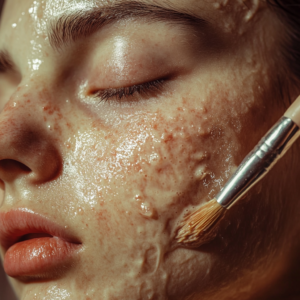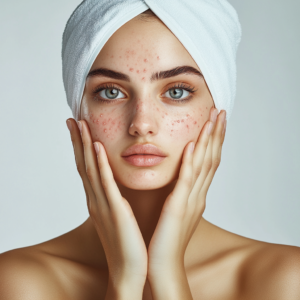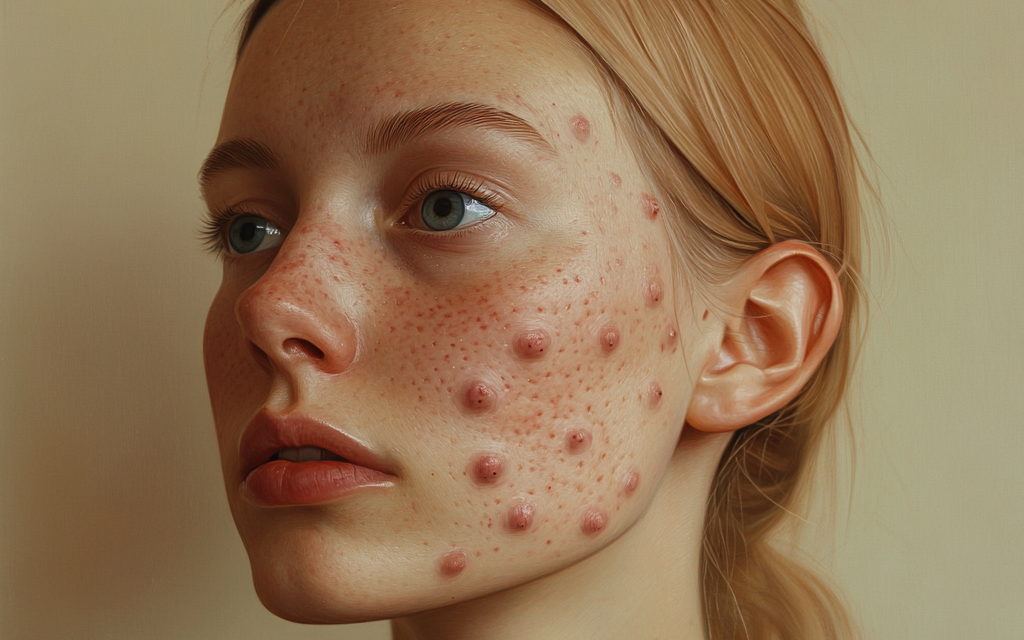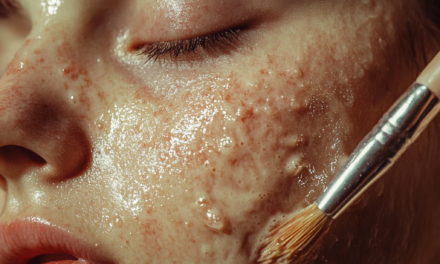What is sulfur acne spot treatment?
Acne is more than just a skin issue; it can impact self-esteem and overall confidence. As individuals search for effective solutions, one natural remedy has emerged as a powerful contender: sulfur. Known for its therapeutic properties, sulfur has been used for centuries to address various skin concerns, particularly acne. In this article, we will delve into how sulfur works, its benefits and potential side effects, and how to incorporate it into your skincare routine for clearer skin.
Understanding Sulfur as an Acne Treatment
Acne is a widespread skin condition that can impact individuals of all ages, often leading to frustration and diminished self-esteem. With numerous treatment options available, sulfur has emerged as a noteworthy solution, particularly for those seeking natural remedies. This article explores the benefits, risks, and effective usage of sulfur in treating acne.
What is Sulfur?
Sulfur is a naturally occurring mineral known for its unique properties, including its antiseptic and anti-inflammatory capabilities. Used for centuries in various cultures for its therapeutic benefits, sulfur has gained popularity in the skincare industry as an effective ingredient for treating acne.
How Sulfur Works for Acne
Sulfur works through several mechanisms that make it effective in combating acne:
- Exfoliation: Sulfur helps to remove dead skin cells, which can clog pores and lead to breakouts.
- Oil Absorption: It absorbs excess oil on the skin, helping to prevent the overproduction of sebum, which is a significant factor in acne formation.
- Bacterial Action: Sulfur has antimicrobial properties that can help reduce the amount of acne-causing bacteria on the skin’s surface.
Due to these functions, sulfur can be particularly effective for individuals with oily or acne-prone skin, making it a sought-after ingredient in topical treatments.
Benefits of Sulfur in Acne Treatment
Using sulfur for acne treatment offers several advantages:
- Gentleness: Sulfur is generally well-tolerated by most skin types, including sensitive skin, making it a suitable choice for acne treatment for a broader audience.
- Less Irritation: Compared to other active ingredients like benzoyl peroxide or salicylic acid, sulfur tends to cause less irritation and dryness, thereby minimizing the risk of adverse reactions.
- Combination with Other Ingredients: Sulfur can be effectively combined with other acne-fighting ingredients, such as salicylic acid or tea tree oil, to enhance its efficacy.
Various Forms of Sulfur Products
Sulfur can be found in several forms, catering to different preferences and needs:
- Sulfur Cleansers: These are formulated to cleanse the skin while providing the benefits of sulfur, removing impurities and excess oil.
- Spot Treatments: Sulfur-based topical treatments can be applied directly to individual blemishes for targeted action.
- Masks: Sulfur masks can be used weekly to provide a deeper treatment and help clear the skin of impurities.

acne
How to Use Sulfur for Acne
To maximize the effectiveness of sulfur in treating acne, consider these tips:
- Patch Test: Always perform a patch test before using a new product that contains sulfur to check for sensitivity or allergic reactions.
- Follow Instructions: Use sulfur products according to the manufacturer’s directions. For example, spot treatments may require a small amount applied directly to blemishes, while masks might need to be left on for a specified duration.
- Moisturize: Since sulfur can lead to dryness, it is essential to follow up with a non-comedogenic moisturizer to keep the skin hydrated.
Potential Risks and Side Effects
While sulfur is generally considered safe for topical use, some individuals may experience side effects. Common risks associated with sulfur for acne treatment include:
- Dryness: One of the most common side effects is skin dryness, which can lead to flakiness and irritation. Regularly using a good moisturizer can help mitigate this effect.
- Burning Sensation: Some people may experience a mild burning or tingling sensation upon application, particularly if they have sensitive skin.
- Allergic Reactions: Although rare, some individuals may have an allergic reaction to sulfur. Symptoms can include redness, itching, or swelling at the application site.
Who Should Avoid Sulfur Treatments?
While sulfur is suitable for most skin types, certain individuals may want to avoid its use:
- Individuals with Allergies: Those with known allergies to sulfur or sulfites should steer clear of sulfur treatments.
- Severe Acne Cases: If you have severe acne or cystic acne, it’s best to consult a dermatologist before starting sulfur treatments to determine the most effective approach for your skin condition.
Complementing Sulfur with Other Treatments
For optimal results, consider using sulfur in conjunction with other acne treatments:
- Salicylic Acid: This beta hydroxy acid (BHA) can be used alongside sulfur to enhance exfoliation and help unclog pores.
- Benzoyl Peroxide: Known for its antimicrobial properties, benzoyl peroxide can work synergistically with sulfur to combat bacteria.
- Non-Comedogenic Moisturizers: Always choose a non-comedogenic moisturizer to keep your skin hydrated without clogging pores.

acne
Conclusion
Sulfur is a time-tested remedy that offers a range of benefits for those struggling with acne. Its ability to exfoliate, absorb oil, and combat bacteria makes it an attractive option for many. Additionally, the gentle nature of sulfur makes it suitable for various skin types, including sensitive skin.
However, like any treatment, it is essential to be aware of potential risks and side effects, and to determine the best course of action for your unique skin condition. Consulting with a dermatologist can provide personalized recommendations and ensure you employ the most effective strategy for your skincare needs.
By incorporating sulfur into your acne treatment routine thoughtfully and safely, you can take a significant step toward achieving clearer, healthier skin. Remember that consistency is key, and combining sulfur with a comprehensive skincare regimen can yield the best results. More





